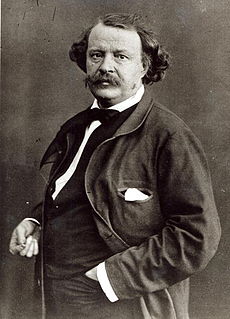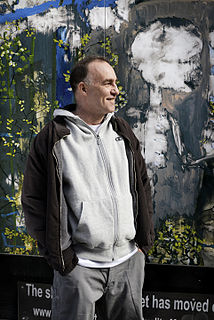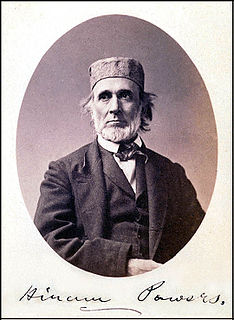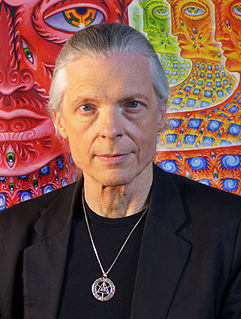A Quote by Nadar
We have had bird's-eye views seen by mind's eye imperfectly. Now we will have nothing less than the tracings of nature itself, reflected on the plate.
Related Quotes
We live less than the time it takes to blink an eye, if we measure our lives against eternity. So it may be asked what value is there to a human life. There is so much pain in the world. What does it mean to have to suffer so much, if our lives are nothing more than the blink of an eye?...I learned a long time ago, Reuven, that a blink of an eye in itself is nothing; but the eye that blinks, that is something.
But the sun itself, however beneficent, generally, was less kind to Coketown than hard frost, and rarely looked intently into any of its closer regions without engendering more death than life. So does the eye of Heaven itself become an evil eye, when incapable or sordid hands are interposed between it and the thing it looks upon to bless.
The great and secret message of the experiential mystics the world over is that, with the eye of contemplation, Spirit can be seen. With the eye of contemplation, the great Within radiantly unfolds. And in all cases, the eye with which you see God is the same eye with which God sees you: the eye of contemplation.
Zen purposes to discipline the mind itself, to make it its own master, through an insight into its proper nature. This getting into the real nature of one's own mind or soul is the fundamental object of Zen Buddhism. Zen, therefore, is more than meditation and Dhyana in its ordinary sense. The discipline of Zen consists in opening the mental eye in order to look into the very reason of existence.
In Poland, the whole saying is, 'You've got one eye to Morocco and the other to the Caucasus.' That's the heart of the culture. In England, they say it less romantic: 'You've got a wandering eye.' The saying means my main stream in life must be Deep Purple. That's my main job. Then every now, and I can wander off and have one eye to Morocco.
The really important facts were that spatial relationships had ceased to matter very much and that my mind was perceiving the world in terms of other than spatial categories. At ordinary times the eye concerns itself with such problems as where? — how far? — how situated in relation to what? In the mescaline experience the implied questions to which the eye responds are of another order. Place and distance cease to be of much interest. The mind does its perceiving in terms of intensity of existence, profundity of significance, relationships within a pattern.
the relationship between the two men was something of a miracle in itself. It was a cordiality based, apparently, on complete non-comprehension cemented by a deep mutual respect for the utterly unknown. No two men saw less eye to eye and the result was unexpected harmony, as if a dog and a fish had mysteriously become friends and were proud each of the other's remarkable dissimilarity to himself.
That cactus went right through my eye. It left my eye flat. They took me to a doctor, and he said, 'We'll have to take the eye out.' ...I fought like a tiger. I said, 'No! Leave the eye alone. I am sure it will grow back.' The doctor said, 'You're too young to know.' ...But in a year's time that fluid came back, and that eye is just as good as the other one today.






































